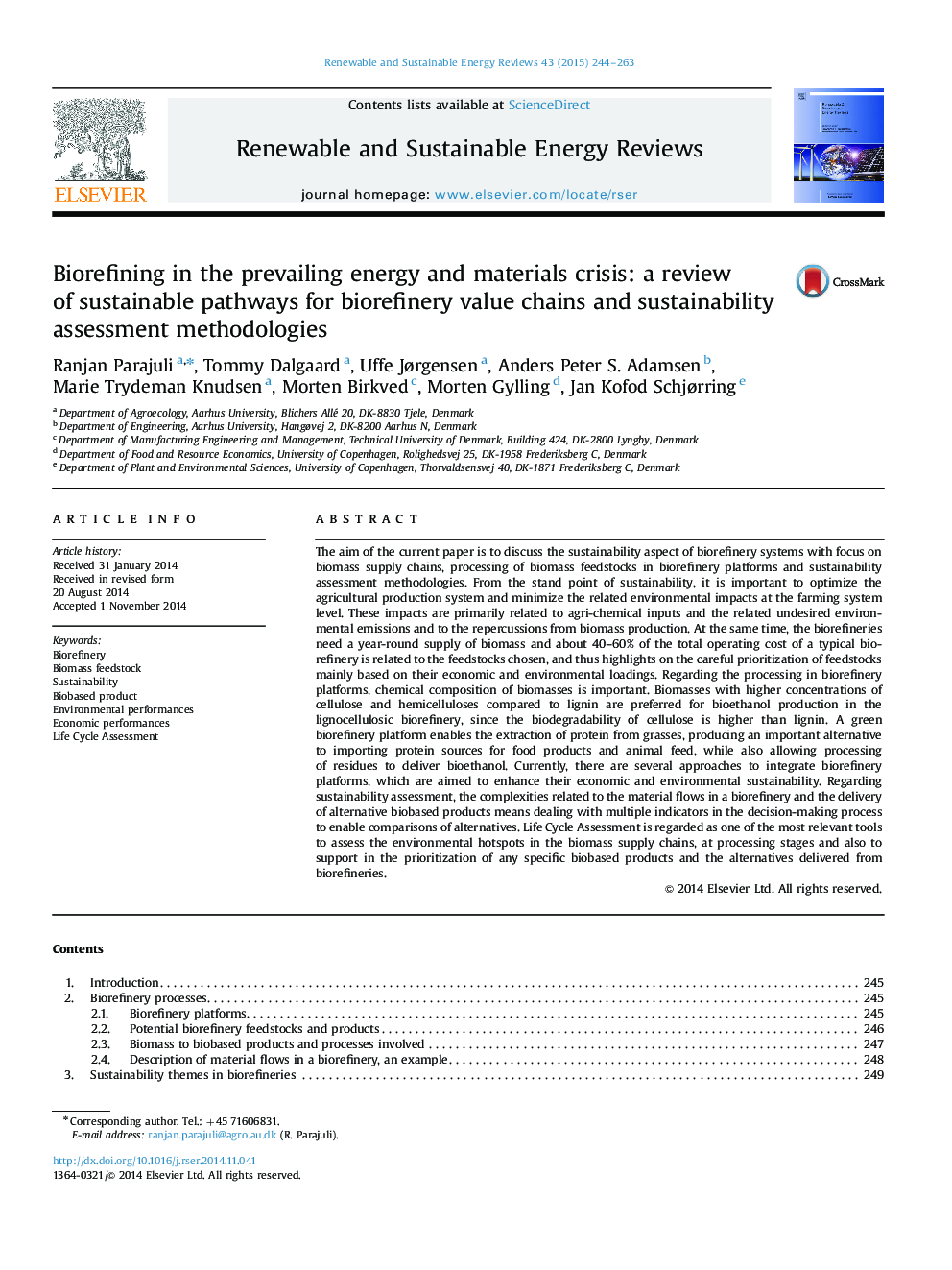| کد مقاله | کد نشریه | سال انتشار | مقاله انگلیسی | نسخه تمام متن |
|---|---|---|---|---|
| 8117547 | 1522342 | 2015 | 20 صفحه PDF | دانلود رایگان |
عنوان انگلیسی مقاله ISI
Biorefining in the prevailing energy and materials crisis: a review of sustainable pathways for biorefinery value chains and sustainability assessment methodologies
ترجمه فارسی عنوان
بیورفینینگ در بحران انرژی و مواد غالب: بررسی مسیرهای پایدار برای زنجیره ارزش زنجیره ای و روش های ارزیابی پایداری
دانلود مقاله + سفارش ترجمه
دانلود مقاله ISI انگلیسی
رایگان برای ایرانیان
کلمات کلیدی
موضوعات مرتبط
مهندسی و علوم پایه
مهندسی انرژی
انرژی های تجدید پذیر، توسعه پایدار و محیط زیست
چکیده انگلیسی
The aim of the current paper is to discuss the sustainability aspect of biorefinery systems with focus on biomass supply chains, processing of biomass feedstocks in biorefinery platforms and sustainability assessment methodologies. From the stand point of sustainability, it is important to optimize the agricultural production system and minimize the related environmental impacts at the farming system level. These impacts are primarily related to agri-chemical inputs and the related undesired environmental emissions and to the repercussions from biomass production. At the same time, the biorefineries need a year-round supply of biomass and about 40-60% of the total operating cost of a typical biorefinery is related to the feedstocks chosen, and thus highlights on the careful prioritization of feedstocks mainly based on their economic and environmental loadings. Regarding the processing in biorefinery platforms, chemical composition of biomasses is important. Biomasses with higher concentrations of cellulose and hemicelluloses compared to lignin are preferred for bioethanol production in the lignocellulosic biorefinery, since the biodegradability of cellulose is higher than lignin. A green biorefinery platform enables the extraction of protein from grasses, producing an important alternative to importing protein sources for food products and animal feed, while also allowing processing of residues to deliver bioethanol. Currently, there are several approaches to integrate biorefinery platforms, which are aimed to enhance their economic and environmental sustainability. Regarding sustainability assessment, the complexities related to the material flows in a biorefinery and the delivery of alternative biobased products means dealing with multiple indicators in the decision-making process to enable comparisons of alternatives. Life Cycle Assessment is regarded as one of the most relevant tools to assess the environmental hotspots in the biomass supply chains, at processing stages and also to support in the prioritization of any specific biobased products and the alternatives delivered from biorefineries.
ناشر
Database: Elsevier - ScienceDirect (ساینس دایرکت)
Journal: Renewable and Sustainable Energy Reviews - Volume 43, March 2015, Pages 244-263
Journal: Renewable and Sustainable Energy Reviews - Volume 43, March 2015, Pages 244-263
نویسندگان
Ranjan Parajuli, Tommy Dalgaard, Uffe Jørgensen, Anders Peter S. Adamsen, Marie Trydeman Knudsen, Morten Birkved, Morten Gylling, Jan Kofod Schjørring,
